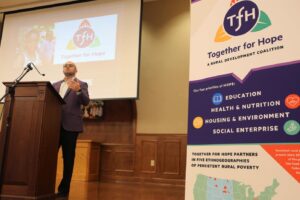By: Danny McArthur

TUPELO • Restructuring the narrative around food security and community development, informing clients on SNAP eligibility and educating attendees on how to advocate for food security policy were among several topics discussed at the North Mississippi Food Security Meeting Tuesday.
Approximately 50 community leaders and advocates in food security attended the meeting at All Saints’ Episcopal Church.
The north Mississippi meeting is one of six regional meetings across Mississippi. Jason Martin of the Tupelo/Lee County Hunger Coalition wanted to help facilitate a meeting in Tupelo after attending the first meeting in Shaw, and has also attended the Jackson meeting. Though event planning began three months ago, Martin said the Tupelo/Lee County Hunger Coalition has been working on collaborative work between different partners since 2016.
“The work today is around creating a statewide collective of agencies and organizations that are passionate about the work around food insecurity and working together to create solutions that can impact each area based on whatever the community needs might be,” Martin said.
Kathryn Rehner, policy associate at the Mississippi Center for Justice, shared her experience working to make Mississippi more food secure through legal support, advocacy and community engagement in August 2018.
After identifying people working around food security throughout the state, Rehner said she and a colleague realized there were many organizations, such as food banks and religious communities, which were doing related work around food security. They decided to host these meetings as a way to share resources to address the hunger epidemic in the state.
“The hope is that from this meeting, we’ll be able to create a network of advocates across the state with the aim to increase statewide practices to make Mississippi a more food secure state and help facilitate local and state policy solutions that address food security issues,” Rehner said.
Jason Coker of the Cooperative Baptist Fellowship’s Together for Hope shared how 301 counties have been identified as meeting the USDA identification of persistent rural poverty, defined by having 20 percent or more of the population living below the federal poverty line for the last five years. He said with the new census, it is possible the number of counties will go up. The Delta region makes up 32 percent of all rural poverty in the US, and 42 counties are in Mississippi. Northeast Mississippi has 13 counties considered to have persistent rural poverty, with Oktibbeha being one of them.
Together for Hope prioritizes education, health and nutrition, housing and environment, and social enterprise. Coker shared that one of their ways to assist communities is doing assets-based community development rather than needs-based assessments.
“(In needs assessments) we analyze that community, we look at the neighborhoods in that community and then they say, ‘This is everything that is wrong with you’ and in grantmakers, this is a big problem for grantmakers who give money based on what’s wrong,” Coker said.
Coker said his organization’s goal is to instead build relationships with communities, host a town hall meeting, and ask people to share their town’s assets instead.
Both Lucy Titus, DeSoto County director with the Department of Human Services, and Evie McClarty, outreach assistant manager for Feeding the Gulf Coast, spoke about SNAP assistance. McClarty emphasized that their SNAP assistance covers the whole state, but with a staff of 13 that covers both Alabama and Mississippi, they are still working on reaching northeast Mississippi in a larger way.
“Our contract with DHS allows us to redirect funds to communities and put them in the area they really need to be, and Tupelo is one of those areas. The northeast corner of this state has not been touched the way we want to … so we rely on you guys a lot,” McClarty said.
Martin said he hopes the meeting helps create a larger state network to advocate for those in need. One goal was to bring together different partners in food security who may not normally cross paths but play a role in food security, such as agricultural partners, legal agencies and charity organizations.
“A lot of the time, we do work in one specific thing. If we had connections in other arenas, then we would really have the chance to maybe make a referral to a client who needs a specific things that they might need,” Martin said.



